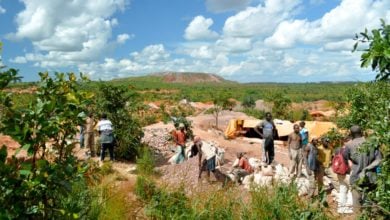In an incident of environmental racism on a global scale, at least 400 tons of extremely toxic waste was dumped from a Dutch-owned ship at 11 open air sites in Abidjan, Ivory Coast. The noxious fumes from the “slops” have sent 36,000 people to see doctors with symptoms including rashes, vomiting and fainting. Seven people have died.
The ship, named the Probo Koala, is owned by Dutch-based transnational trading company Trafigura.
|
As a result of the crisis, workers and young people rose up in Abidjan, setting up burning barricades in some neighborhoods. The Ivorian cabinet has resigned. And at least seven government officials have been arrested in connection with the dumping, along with two French officials of Trafigura.
Trafigura director Claude Dauphin, and its West Africa manager Jean-Pierre Valentini were charged with poisoning and breaking toxic waste laws, said justice ministry official Ali Yeo.
Trafigura said it had hired an Ivory Coast-based company called “Tommy” to “properly dispose of” the sludge.
On Aug. 19 and 20, toxic waste from the Probo Koala, was released by the Tommy company at 11 dump sites in Abidjan. Netherlands authorities said an attempt to unload the waste at its Amsterdam port earlier had been cancelled because of complaints about the noxious smell.
Environmental group Greenpeace said the dumped sludge was made up of oil refining waste, rich in organic matter and poisonous elements. These include hydrogen sulfide and organochloride, which cause nausea, rashes, fainting, diarrhea and headaches.
Capitalists look for cheapest way out
On Sept. 14, young people and workers protested militantly in Abidjan. Protestors burned the home of the port director, Marcel Gossio, and pulled the transportation minister, Innocent Anaky Kobenan, from his car. The two are seen as responsible for allowing the dumping to occur.
In another sign of the political crisis triggered by the dumping, the entire cabinet of prime minister Charles Konan Banny resigned. A government investigation into the dumping has been launched, in addition to an international effort to clean up the 11 dumpsites.
Toxic materials are frequently the byproducts of industrial production. When capitalists privately own the industries, they are not concerned with the long-term impact of the wastes they have created. They are only oriented toward securing profits. For that reason, the main issue for the capitalists is how to dispose of toxic waste as cheaply as possible.
As people in the United States and other highly industrialized nations have become more aware of the long-term health effects of exposure to toxic waste, movements have emerged to keep the waste out of specific neighborhoods. A pattern has developed for the polluters to target working-class and nationally oppressed neighborhoods as sites for toxic waste disposal. This pattern of environmental racism also can be seen globally as capitalists send waste products all over the world seeking places to store their garbage.
The global environmental movement has led to protocols intended to protect countries and communities from toxic dumping. There are specific practices that can be followed to reduce the dangers associated with disposing of toxic materials. However, toxic waste producers have found ways to get around these regulations in order to maximize profits.
The best way to reduce the danger from toxic waste is to use fewer toxic materials during production. But Capitalists do not adopt toxic reduction measures unless forced to do so.
The struggle that has erupted in the Ivory Coast shows that environmental issues, such as the dumping scandal, can provoke a political crisis.





